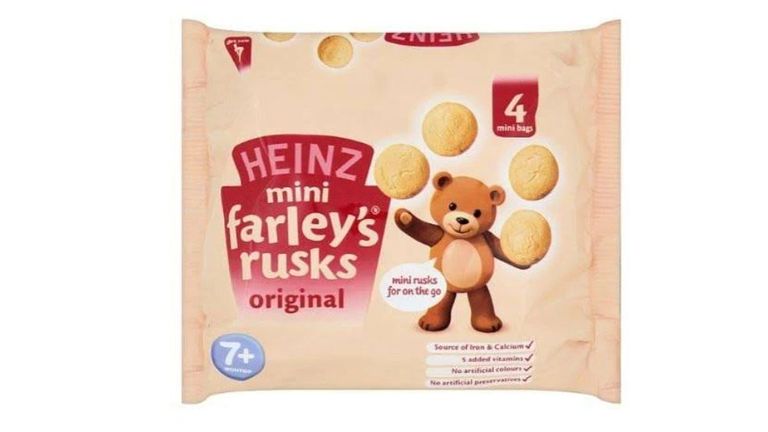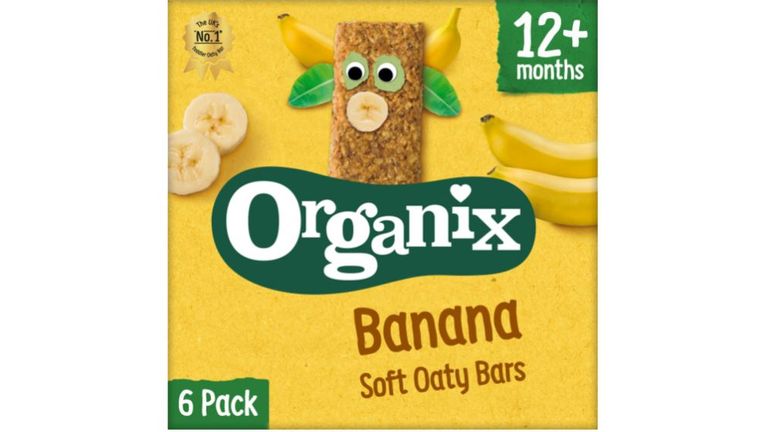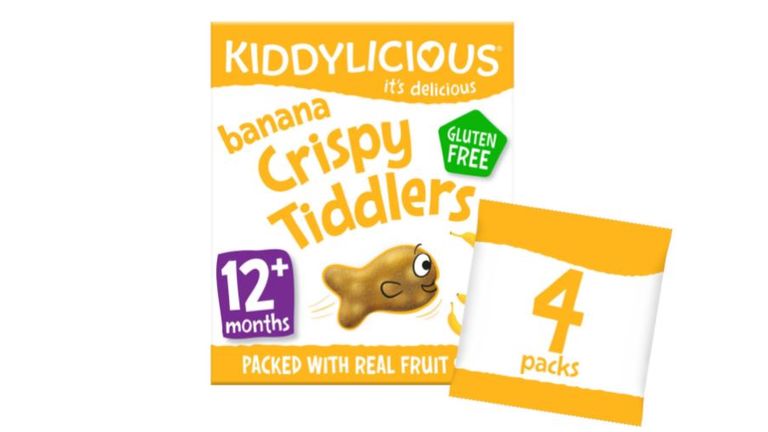
Baby and toddler snacks deemed as “healthy” can contain as much as two teaspoons of unnecessary sugar despite being sold as a weaning food, a study has found.
More than a third (37%) of baby sweet snacks could receive a traffic light-style label for sugar content, according to research by Action on Sugar.
The campaign group found that of the 73 baby snacks analysed, just six products (8%) would have received a green (low) label for sugars.
Packaging on baby and children’s food and drink in the UK are currently not required to display traffic light labelling.
The worst offenders in the study included Heinz Farley’s Mini Rusks Original, with 8.7g of sugars per serving or the equivalent of two teaspoons of sugar, followed by Organix Banana Soft Oaty Bars, which are sweetened with apple juice concentrate and contained 8.1g of sugars per serving.
Meanwhile, five products from the Kiddylicious brand scored the worst for sugars per 100g – Banana Crispy Tiddlers at 59g of sugar per 100g, and Pineapple, Coconut and Mango Juicy Fruit Bars made up of 30.7g of sugar per 100g.
Some 84% of parents of young children said they buy these sweet snacks for their children, a poll for Action on Sugar found, while 60% said a “no added sugar” claim would be the reason for choosing a particular product.
And around 92% said they were more inclined to buy products containing “natural sources” of sugars – such as fruit.
Action on Sugar said the findings were of “deep concern” and advised that babies and toddlers should not eat any free sugars at all.
The group is calling for the removal of “misleading” nutrition and health claims, especially around “no added sugar”, when refined sugar is replaced by fruit concentrates which are still a type of free sugar.
It also wants the government to finally publish its composition guidelines for baby and toddler products, which will guide manufacturers on how much sugar should be used.
Dr Kawther Hashem, campaign lead at Action on Sugar and research fellow at Queen Mary University of London, said: “It’s ludicrous that certain food companies are being allowed to promote their high-sugar sweet snacks to parents with very young children, despite them being aware that babies and toddlers shouldn’t be having any free sugars.
“Babies can have a preference for sweet foods, due to milk being ever so slightly sweet, but liking sugary foods is something they only learn by eating sugary foods.
“Some companies choose to encourage this preference further by providing lots of very sweet products from an early age. What we need is companies to make products with minimal amount of sugars, so young children can grow up enjoying less sweet foods.”
Responding to the study results, Heinz said in a statement: “Sugar reduction is a key focus for Heinz for Baby and we are looking into ways to improve the products we make. Alongside the original rusks, Farley’s offer a range of reduced-sugar rusks with 30% less sugar.
“The level of added sugars in these recipes is kept to a minimum consistent with the need to provide a texture which dissolves easily to avoid the risk of choking. Farley’s Rusks are very different from typical biscuits, containing very little fat and no added salt.”
A Kiddylicious spokeswoman said: “The Kiddylicious products highlighted in this report are sweetened by fruit, which naturally does contain sugar.
“We pack all of our snacks in portion-controlled bags for tinier tummies. This helps parents to moderate consumption and also ensures that the nutritionals are of appropriate levels for children.”








More Stories
Inspiring Change: Michael Bates Path to Entrepreneurship and Giving Back
Climate Token YES WORLD is now available for trading on top crypto change LaToken
An Exclusive Interview with the Young & Dynamic Entrepreneur, Roberto.